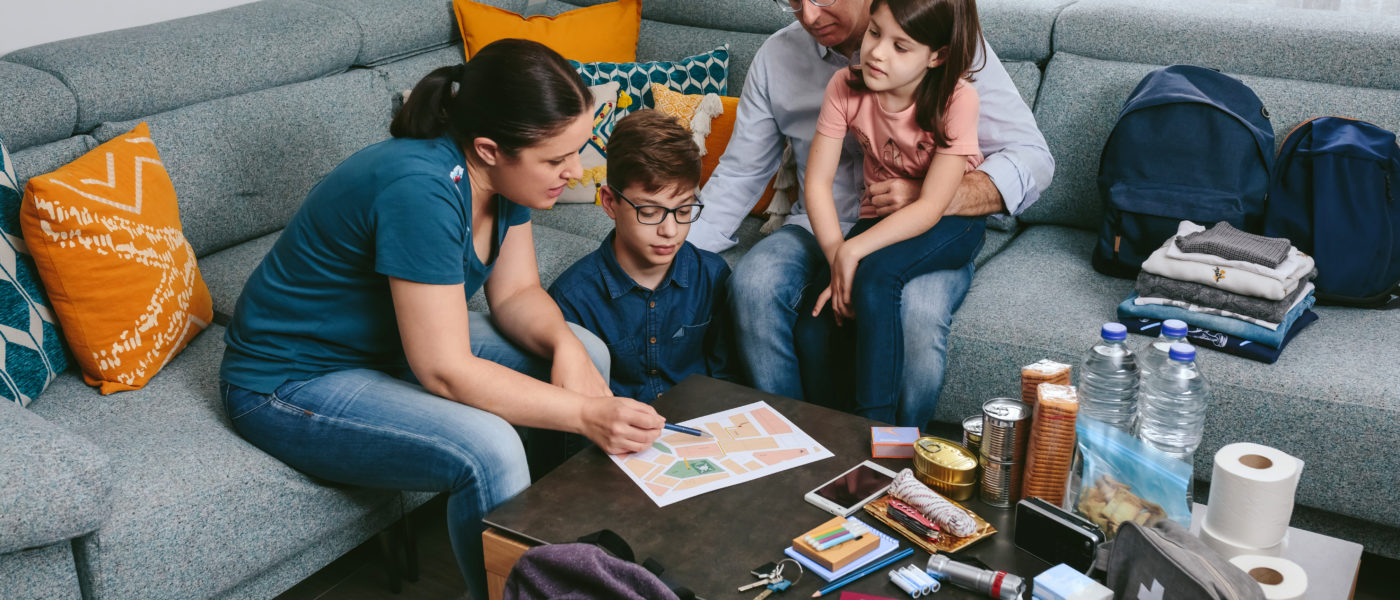
Writing a plan formalizes ideas and establishes a uniform way of responding to an emergency. Organized action is important because seconds can save lives. People do what they practice, and in the confused aftermath of a disaster, instinct brought about by practice takes over.
1. Make a plan for fires, power outages, tornadoes, floods, earthquakes and other disasters. Involve each person in your family, no matter what their age or ability. Plan in advance. Practice the plan and follow the plan when the emergency presents itself.
2. At home, prepare for each family member a grab-and-go kit with a three-day supply of food, water, clothes, medicine, baby items, etc. If you evacuate your home, it keeps you self-sufficient until your family is settled.
3. Establish a meeting point outside the home (the mailbox, for example) where a head count can be conducted. This allows quick identification of who is missing, which is vital information for rescuers.
4. Also establish a meeting point 1-2 miles from home (a friend or relative’s house, for example) where family members can assemble if access to their home is impossible because of destruction and danger. It’s unlikely both places would be affected by the same disaster and this provides a place to assemble within walking distance.
5. Designate an out-of-town family member who can contact other relatives. Phone and data systems could be damaged, and are usually overloaded for days following a disaster. Try to establish contact with your designated out-of-town family member so they can pass along information to anyone worried about your well-being.
6. Get a NOAA Weather Radio, first-aid supplies and flashlight with batteries. Safeguard vital records, keys, cash, credit cards, etc. Keep emergency supplies and equipment in your car.
7. If you have landlines at your home, have a phone available that plugs into a telephone jack into the wall as cordless phones do not work in a power outage. Cellular phone networks could be out of order, so try to send text messages. If possible, before an emergency, charge up portable power supplies that can recharge your phone when there is no power. This may be your only way to reach help.
8. Include in your plan the purchase of insurance to cover homes, businesses, and their possessions. Apartment dwellers should also obtain renter’s insurance. It is a good idea to maintain an inventory of your belongings via photos, videos or a written list. The written inventory should be put in a safe place like a bank box or vault. If you live in an area that typically floods, consider getting flood insurance. For details about the National Flood Insurance Program, contact your insurance agent.
9. After a disaster, account for your family, check on your neighbors, render aid as needed, and notify authorities. Assemble your family and re-establish a safe physical/emotional home environment and notify relatives of your location.
Make advance arrangements with a boarding kennel or stable, relative, etc., to care for your animals in anticipation of an evacuation. A place 1-2 miles away may not be affected by the same evacuation.
Some hotels and motels accept pets, but call ahead.
If you can’t move your animals, make water (even in winter) and feed available. If possible, arrange shelter out of the wind and sun.